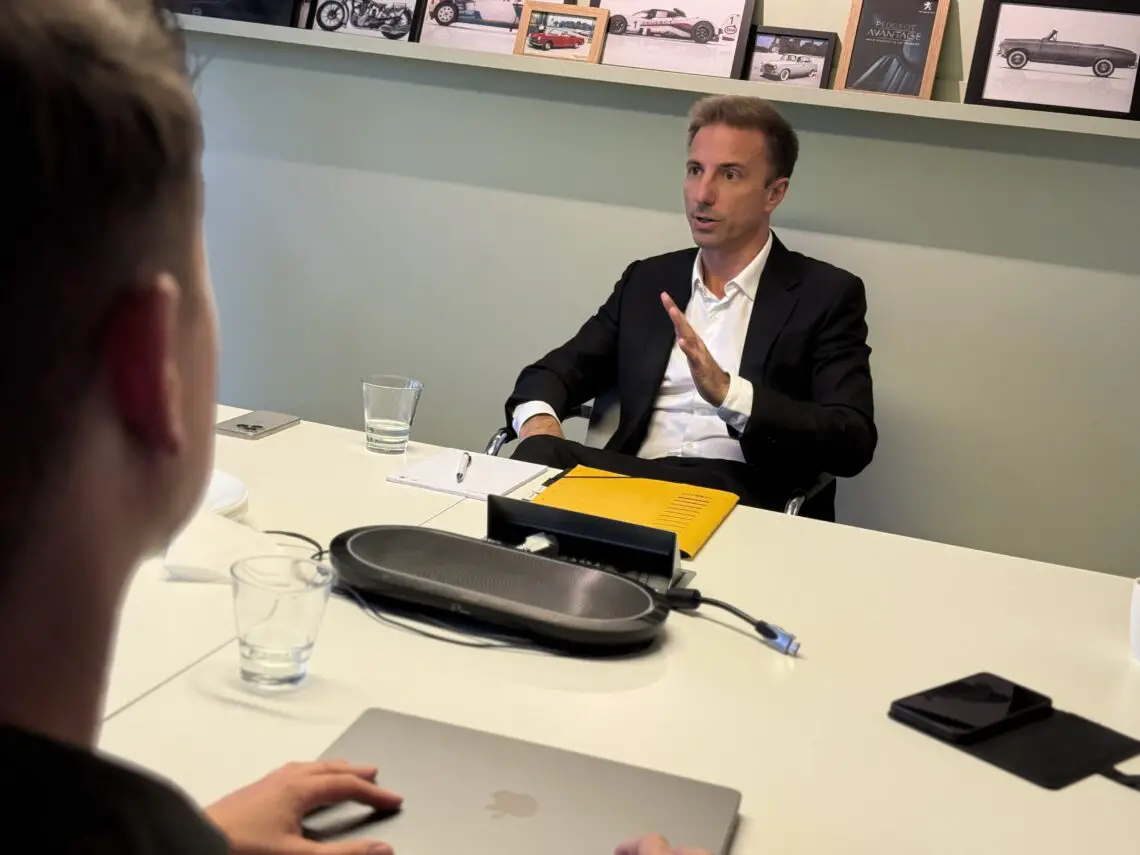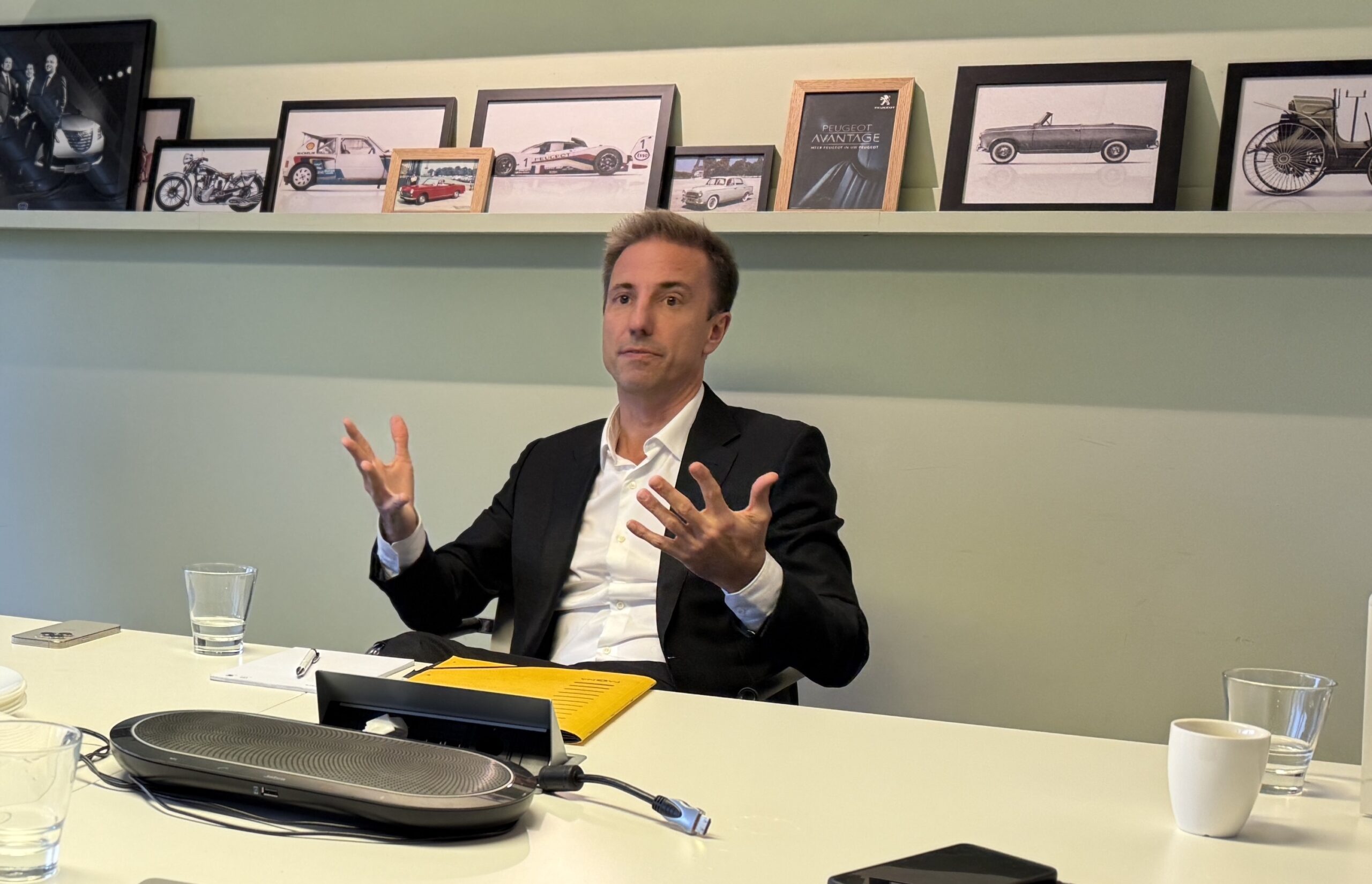Interview Opel CEO Florian Huettl: “The auto industry is in a huge transition”
How do you look at the role of Opel within Stellantis? What is Opel’s USP, its DNA?
“I don’t think the customer cares much about that. Design, technology and a lot of value for money, those three aspects have always been very important for Opel. Opel is still a German brand with driving characteristics befitting a German car. We place great value on driving characteristics, smart lighting, beautiful design and are fully committed to “Greenovation,” our vision of sustainability. All in all, that’s an interesting total package for the customer.”
How do you personally view electrification?
“Electrification is incredibly important: low-carbon or just locally emission-free mobility is becoming increasingly important. We have been moving towards electrification for years. The year 2024 is also an important moment for us in that sense, because thanks to the new Frontera and Grandland, we now have a complete BEV lineup. All the models we supply are available with a battery-electric powertrain. Of course, we hope our customers will follow us on this transformation to electric driving. Of course, the Opel of today cannot be compared to the Opel of ten years ago. Very big steps have been taken. Our job now is to make sure that the choices we make appeal to a huge group. In Germany, for example, we are growing very strongly.
So Opel is also holding out for no more internal combustion engines by 2035?
“The ban on sales of ICE engines in 2035 we have yet to see. The European Union has given clear guidelines and imposed regulations. As a European brand, we work in a European environment and we also want to comply with the rules imposed on us. There is no turning back if customers drive BEV. There has been a clear transition towards that technology. Opel is already ready for it now. We can switch over in no time. By the way, the CO2 targets imposed are very strict, but we have everything we need to achieve those targets. But I do want to say this: the road to a CO2-free future cannot be realized by the automotive industry alone. We also need green energy and a decent charging infrastructure that can handle all the energy. Ultimately, we have to do it together. We are especially counting on support from governments that provide stable regulations.”

Is it true that the cost per kWh is going to drop dramatically?
“Battery technology is still expensive, so BEVs are still a bit more expensive compared to hybrid. That’s a fact. It is important for us that BEVs become attractive and affordable. For example, the Opel Mokka Electric has recently become cheaper. And the new Frontera is also very affordable. Even the electric Opel Corsa has come down in price. This is because we are constantly making strides. Making batteries in Europe is incredibly important, we have to realize that. In that area we have really lost ground compared to China. The whole battery ecosystem has to become part of our Europe value chain, instead of us buying batteries elsewhere. We are already taking big steps. For example, the batteries of the new Grandland – being built in Eisenach – come from the ACC Gigafactory in France. The investments are sky-high, but necessary.”
Will Opel come up with a small electric car based on the new Fiat Grande Panda?
“More attractive and cheaper battery-electric cars are desirable. If you look at the new Frontera: that model is on the Smartcar platform. This platform is also optimized for modern BEVs. Of course, there are other models ready, such as a new Manta. I can’t tell you more about that right now.”
You can see that Renault clearly focuses on retro design. Just look at the Renault 4 E-Tech and Renault 5 E-Tech. Opel also has a nice history, with the many Kadett generations, for example. Is there a plan within Opel to follow the same strategy that Renault is now following: creating retro hero cars and a conventional model lineup?
“Opel is a forward looking brand. What we want to achieve is that our design language uses retro aspects that made Opel an Opel. Think of the Vizor, for example, as a reference to the Manta, but also the geometry of a car. If you buy an Opel now, there are always interfaces with Opels from ten, twenty years ago. So there is a bit of retro design in every Opel. We make modern cars that appeal to today’s buyers, so we’re mainly looking ahead. My goal is to make cars that are relevant for today and tomorrow. In that sense, the Opel Experimental Concept is a car that in some form we are really going to see back* in Opel’s lineup.”
*Huettl is referring to the new generation Opel Manta.
Is Opel lagging behind in digitalization?
“No, because there are several developments going on in the field of digitization. For example, we have a new generation mobile app coming up with various functionalities. We are also implementing ChatGPT in our models. Over the air updates are already standard in our cars. Step by step, the features are building up. Behind the scenes, we are also developing a new generation software architecture.
The auto industry is in a huge transition, how difficult is that?
“These are absolutely exciting times in the automotive industry. The entire industry is currently undergoing a massive transition toward carbon neutrality. This affects every aspect of the industry. Opel has made clear choices in who we want to be and what strategic direction we are moving in. Profitability is hugely important, as is the transformation toward electric mobility. We are also spreading our wings toward other countries around the world. We see the transformation primarily as an opportunity. By developing multi-energy platforms, we can offer customers something – anywhere in the world – that best suits their situation. We look to the future with confidence.”
READ ALSO:

